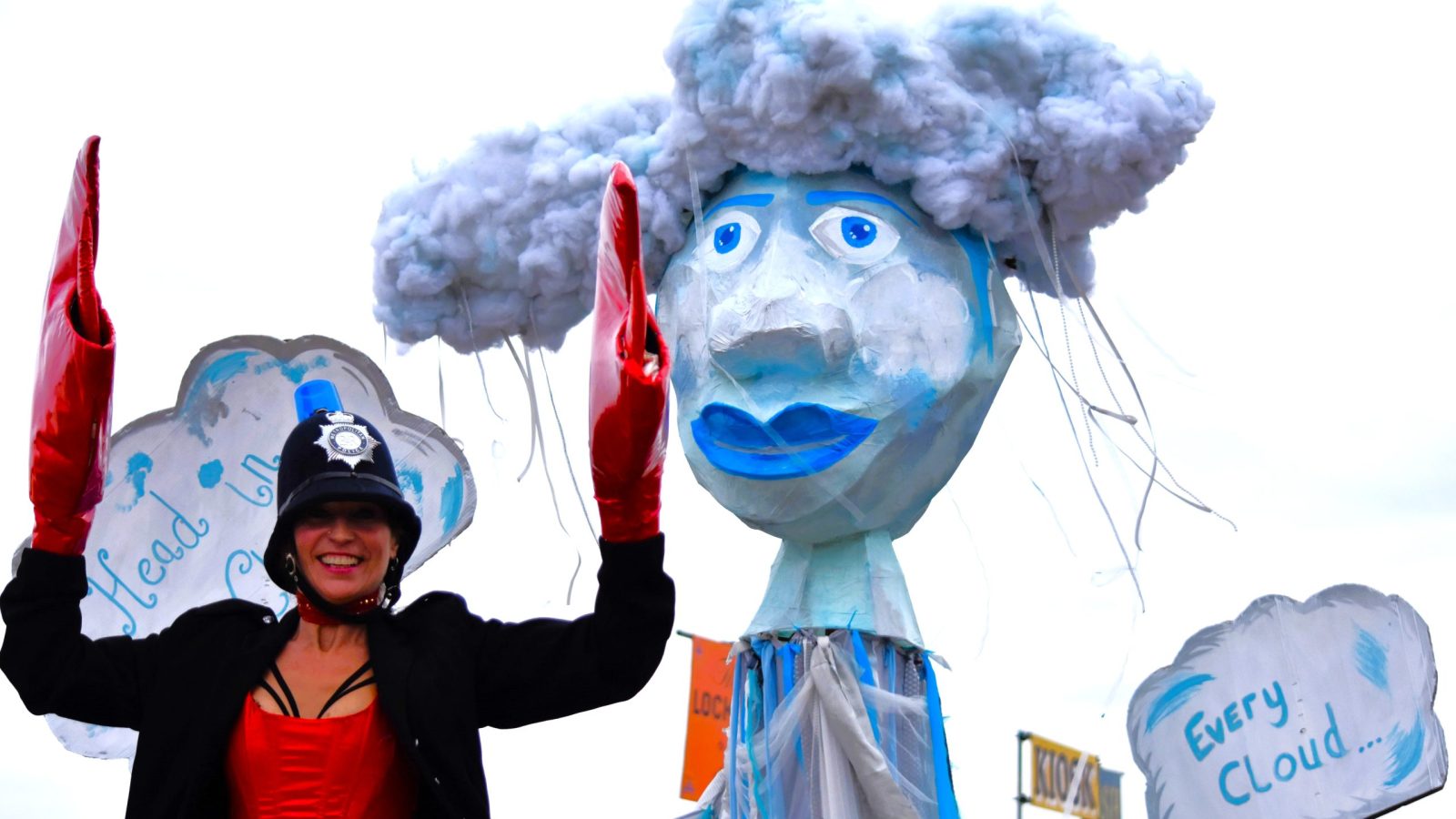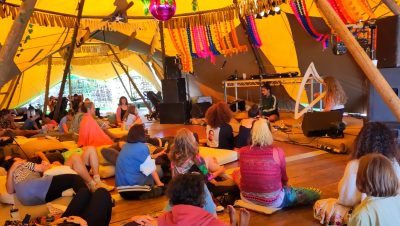Reviews / Shambala
Review: Shambala 2025 – ‘Still the future of festivals’
What it is that sets Shambala apart?
Sure, there’s the outstanding sustainability credentials ranging from a ban on meat to 100 per cent renewable power to an onsite Matter Wholefoods to (this year) becoming the first festival to cook and heat entirely on biogas.
Yes, the diverse musical mix sees a handful of big names rubbing shoulders with artists from all over the world spanning hip hop and house to soul, punk and folk.
is needed now More than ever
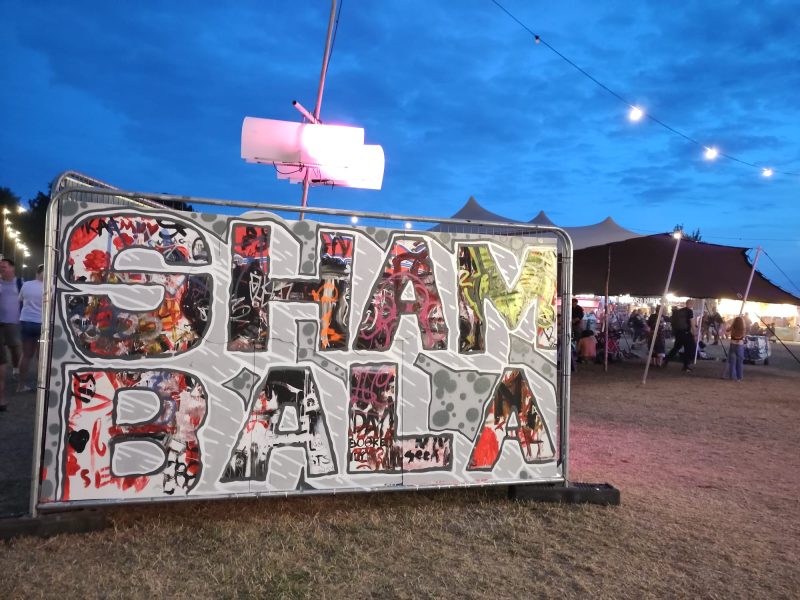
Shambala festival, organised by Bristol’s Kambe Events, has remained fiercely independent and is dedicated to environmental sustainability, saying “it’s in our DNA” – photo: Ursula Billington
Undeniably, the site is beautiful; the politics right on; the talks mind expanding; the poetry boundary breaking; the bass breathtaking.
But what it all adds up to vastly exceeds the sum of its parts.
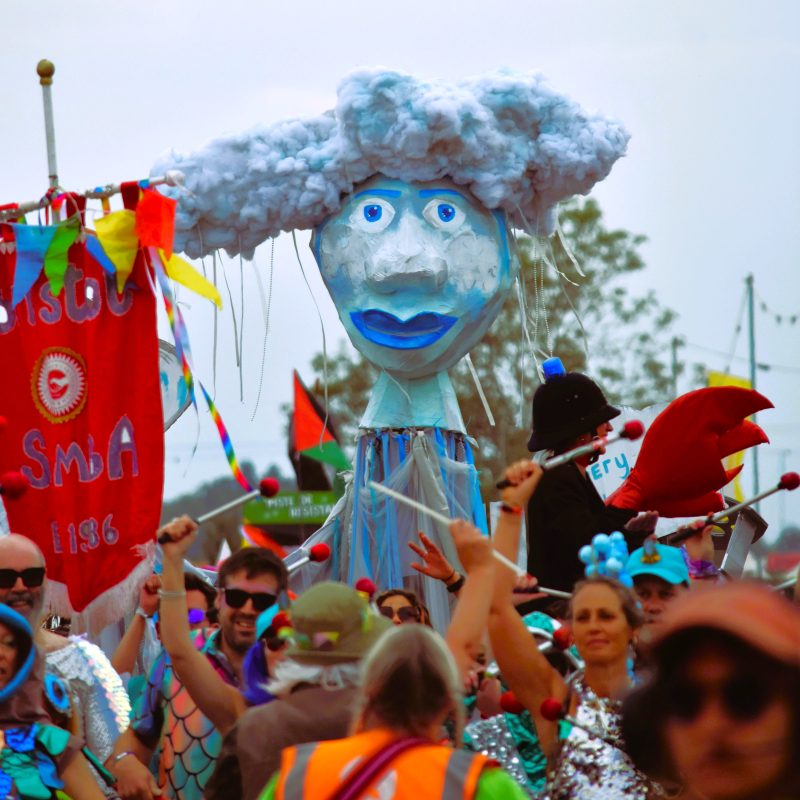
There’s a feeling of celebration that permeates the end-of-summer gathering – photo: Simon Alexander
In its 25th year the fiercely independent festival that has grown organically from a DIY gathering of friends into a community of 15,000 has become the fifth element, the festival divine. And this year more than ever it feels like the divine feminine, embodied.
If that sounds overblown it must be pointed out that at its heart, more than anything, Shambala is all dress up and play.
It’s desperately hunting for green garms on Flamboyant Friday, because not wearing green simply will not do.
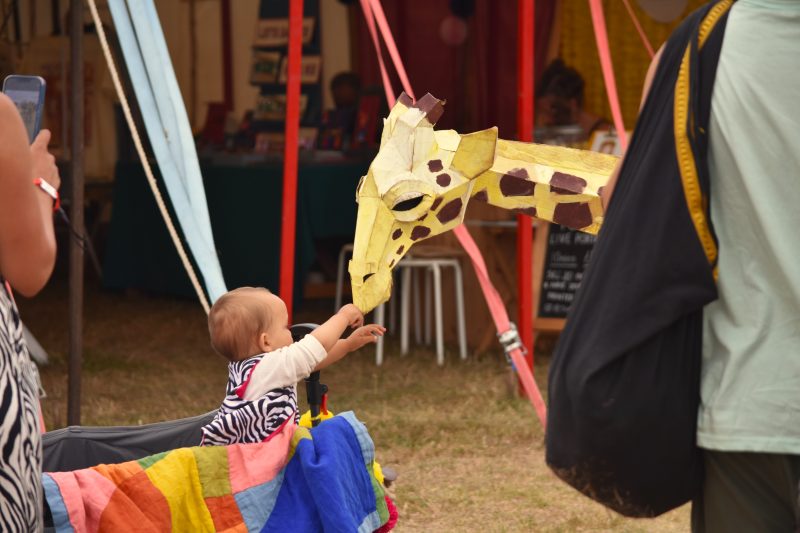
Shambala is a big party but also inclusive, with tons of family-friendly areas and activities including the ‘rub-a-dub tubs’ where parents can bathe their babies in a cosy yurt – photo: Simon Alexander
It’s crowds gathering for the annual high jinks that is the Shambolympics, and intensely serious participation in the carnival which, on the theme of ‘pun intended’, yields more wild handcrafted silliness – and human devilled eggs (“the new sexy cat” says a pal) – than ever before.
It’s spanking a cabbage in a science lab micro-venue hidden in the woods.
It is – as musician Pete the Temp puts it – all “Joy-Joy. Boom-Boom. Yes-Yes and Wow”.
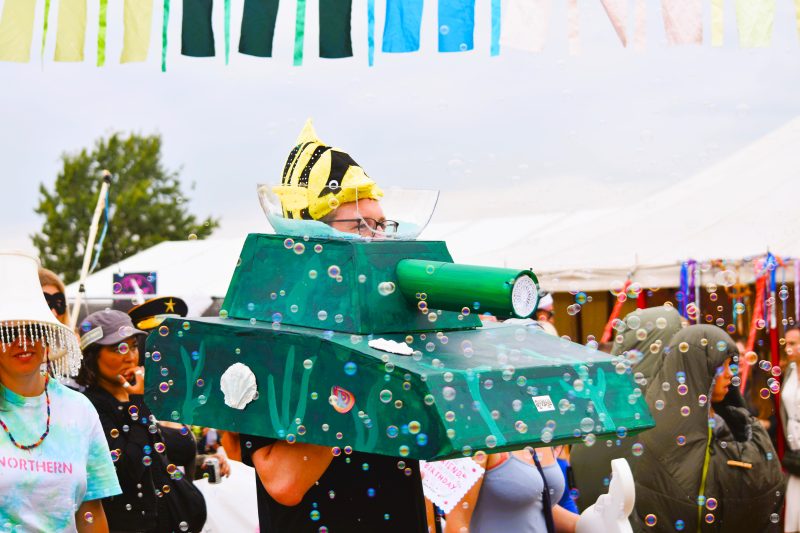
An annual carnival brings festival goers of all ages out to parade through the site in their finery; this year’s theme of ‘pun intended’ led to some wild and whacky costumes – photo: Simon Alexander
The ethos of digging deeper and getting involved is an uplifting one. Shambala is that rare beast: a festival that energises rather than depletes.
If that’s not the divine feminine at work (or maybe at play), what is?
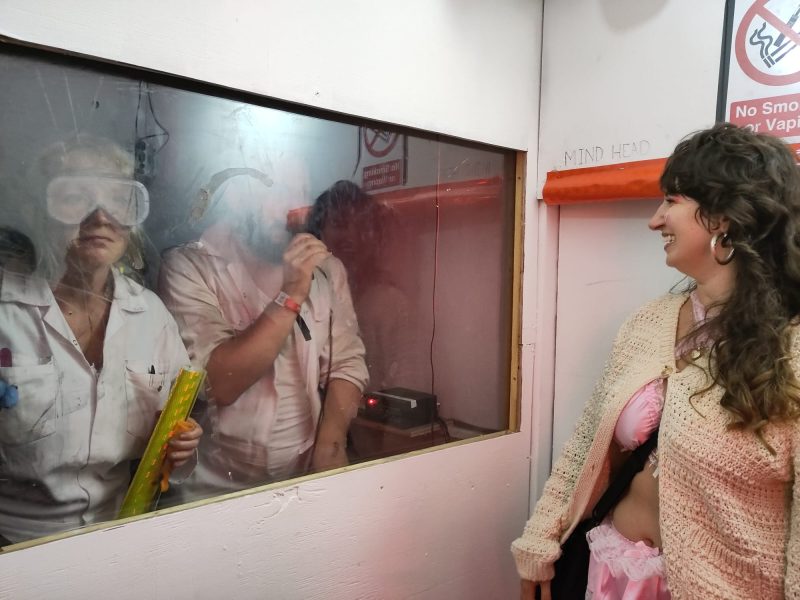
Entering the ‘waiting room’ venue’s creepy science research lab requires a decontamination process – photo: Ursula Billington
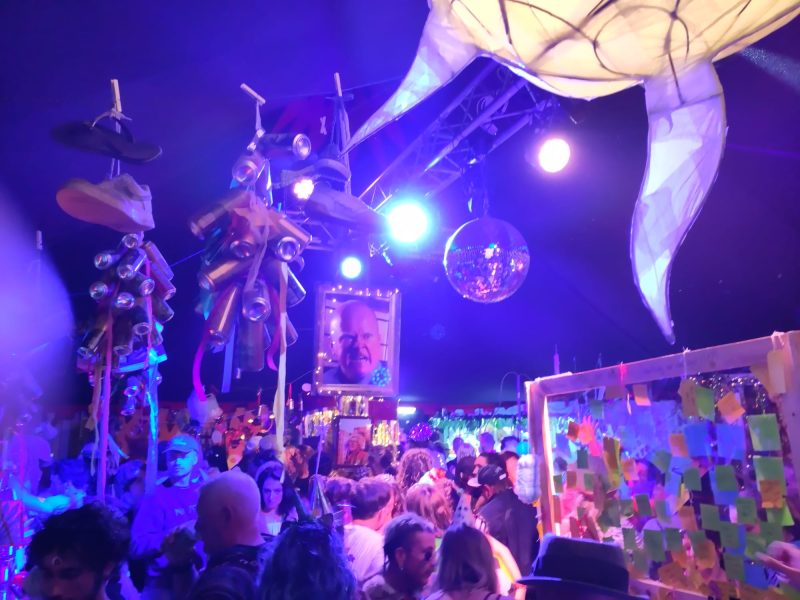
Inside there’s a shrine to Phil Mitchell, a beatboxing preacher in an asparagus mitre and a cabbage passed around for the crowd to spank – photo: Ursula Billington
A handful of musical acts on the bill lean into this absurdity.
Blind Yeo are adorned in medieval wizard cloaks, frontman Will Greenham’s Jarvis-esque strut the cherry on the cake of their delicious Cornish psyche; Bristol’s Binbag Wisdom combine comedy sketches with self-aware satirical raps in a surprisingly effective fresh take on hip hop.

The first outing of Binbag Wisdom’s comedy hip hop show went down a treat which bodes well for their plan to Edinburgh Fringe next year – photo: Ursula Billington
Elsewhere, the programme slides comfortably into the gaping hole left by WOMAD – on hiatus this year while it finds a new site – to present a dynamic global lineup across 40 stages.
This includes a strong cohort of artists from countries suffering attack and oppression, as well as a good proportion of female-led acts, solidifying Shambala’s reputation as a socially-conscious event striving for positive change.
Kefaya & Elaha Soroor’s potent combination of jazz, synth-rock and native folk fuel Soroor’s powerful delivery of song highlighting the plight of women in her home country of Afghanistan.
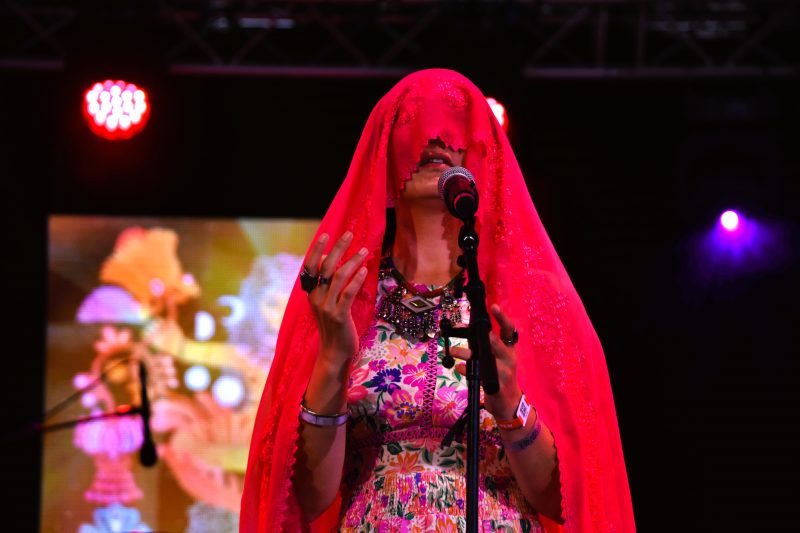
Afghan folk singer Elaha Soroor has joined forced with London-based Kefaya, and their performance is mesmerising – photo: Ursula Billington
Zither player Ustad Noor Bakhsh represents the historical cultural region of Balochistan that is divided between Pakistan, Iran and Afghanistan.
And the Palestinian Sound Archive celebrate the legacy of music from the West Bank, one vintage vinyl at a time.
Calls for a free Palestine are rife across the weekend, with brilliant tongue-in-cheek seven-piece Twat Union highlighting the crisis in Gaza as a feminist issue.
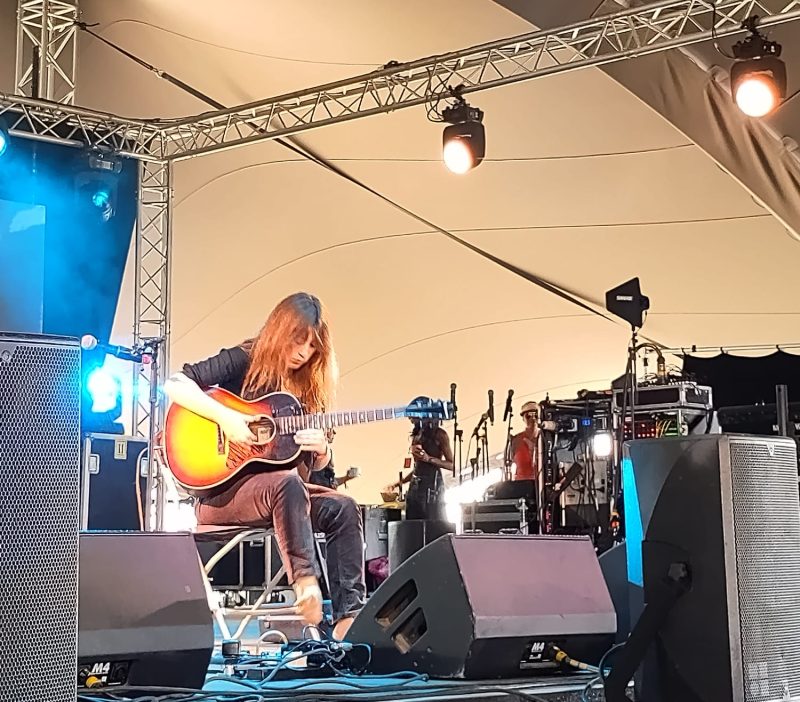
Gwenifer Raymond was a fierce presence to kickstart the festival’s Saturday, her furious guitar instrumentals stunning a supine crowd – photo: Ursula Billington
The House of Weaving Songs, an immersive venue led by Bristol-based feminist Dhaqan Collective, celebrates Somali cultural heritage in the face of climate collapse.
Its traditional tapestries and women’s weaving songs mirror the themes of global resistance and hope woven into the fabric of the festival site itself.
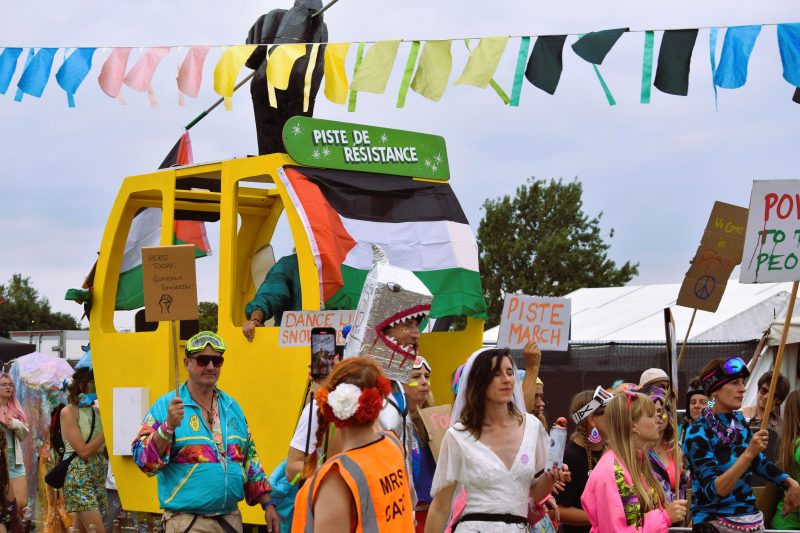
Shambala treads the line between serious and silly – photo: Simon Alexander
Shambala’s annual ‘flags for…’ campaign this year supported Practical Action in Sudan, where the ongoing civil war has displaced ten million people, their precarious situation exacerbated by the climate crisis.
The campaign has raised over £60,000 for charity in the last nine years, the prayer flags flying in streams out from the main stage, Solasta, beautifully representing this year’s donations made by Shambalans.
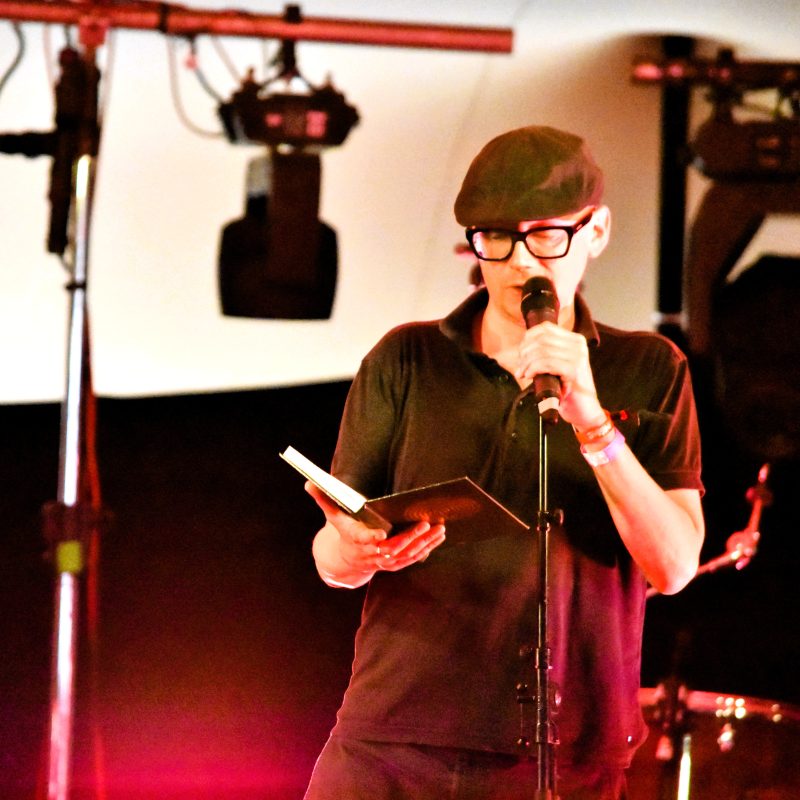
There’s a strong spoken word programme at the Phantom Laundry, with longstanding punk poet Thick Richard performing this year – photo: Ursula Billington
Similarly, the Pay It Forward scheme implemented in 2022 has raised £43,000, providing 58 people who wouldn’t otherwise be able to attend with full festival packages including tickets, transport, camping gear and sustenance.
The festival’s radical ethics are present at every turn, whether in a talk from Led by Donkeys, the dedicated permaculture area, a sitewide two-minute silence for peace, or Evrythng – the spirit brand supporting nature-positive projects – behind the bar.
Artists take this focus on resistance, hope and positive alternatives and run with it, in their own ways.
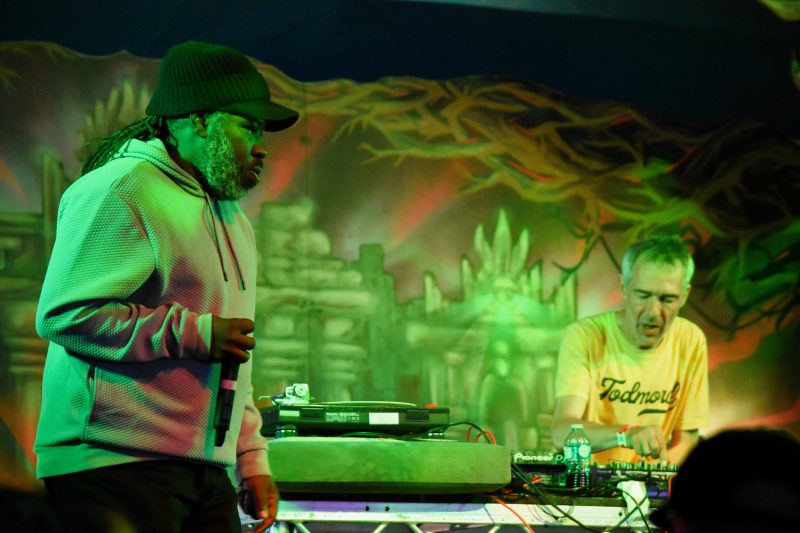
Solo Banton called for love and unity, and railed against the ‘tel-LIE-vision’ with riddims and bass held down by legendary UK Steppers producer Nick Manasseh – photo: Simon Alexander
Akubu Queens are a refreshing revelation through the standout soundsystem of Back-a-Yard. The pioneering all-female reggae collective smash out a set that is peace, love and vibes from start to finish, brandishing their “unapologetically feminine energy” in a stunning celebration of sisterhood.
As part of a politically charged set, in She Drew the Gun’s Class War (How Much) an elated audience yells the refrain “how much did you get paid for that?!” in response to Louisa Roach’s on-the-nose calls of “corruption”, “sexing up the facts”, “new military contracts” and more.
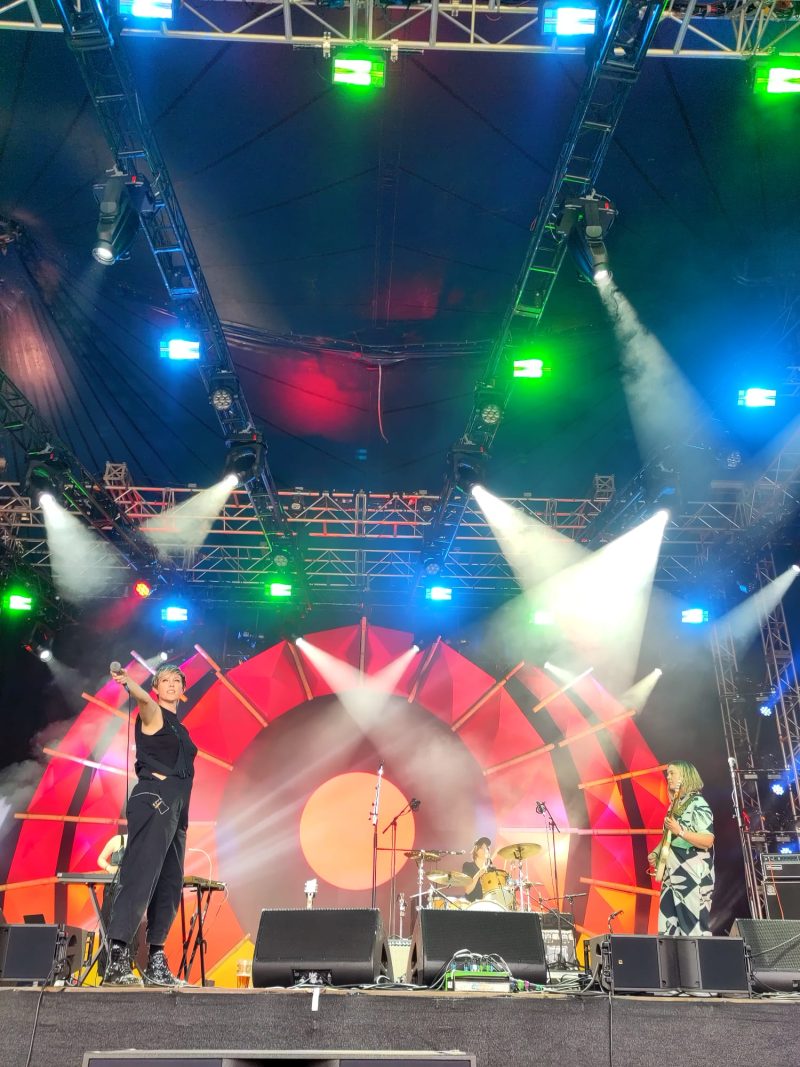
She Drew the Gun seemed an unusual addition to the lineup but her strong political stance and sense of social justice fit the vibe perfectly – photo: Ursula Billington
On the beautiful Solasta stage, lit up like the sun rising over the sea of an enormous crowd, the impeccable Queen Omega officially closes out the festival by hailing “the woman, the feminine energy, the divine feminine!”
Later Rioghnach Connolly, fresh from her performance at the Beacon’s BBC Proms residency, appeared with Honeyfeet. With riotous outspoken wit and a voice in turns soaring and spellbinding, an image of a more divine female would be tough to conjure.
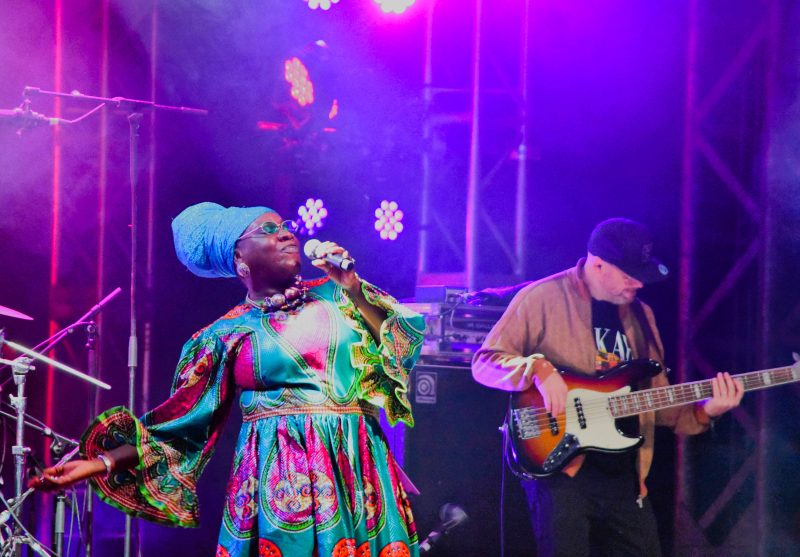
Queen Omega and the Royal Souls closed out the festival to a huge crowd – photo: Ursula Billington
Protest and play define Shambala, the festival walking the line with expert precision to capture the essence of a crowd looking to escape the daily bad news grind without feeling they’ve left their values at home.
Shambala shows it’s possible to do the right thing while having a great time. In treading that path it creates a solid sense of community, one that it’s a joy to be a part of.

Headliners Fat Dog provoked a wildly spirited crowd and the biggest mosh pit possibly ever seen in Shambala’s history – photo: Ursula Billington
Before crowdsurfing into a waiting rickshaw that led his audience to the closing ceremony’s traditional DJ Yoda-accompanied firework display, Pete the Temp and his Vibe Mechanics on trumpet, cello and keys, cleverly bridged the gap between a need for change – “Connect with your inner child. My inner child is called Richard. Richard supports Palestine Action” – and the unbridled joy of music, mayhem and the world’s potential.
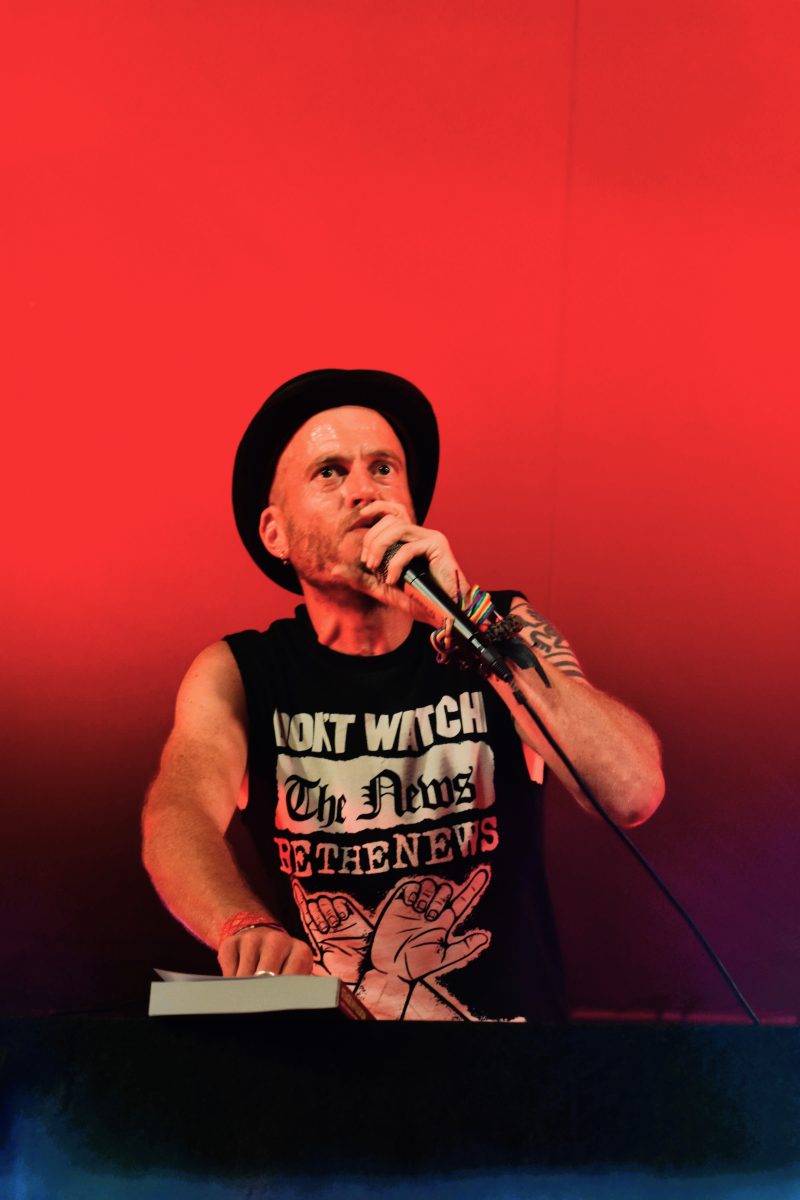
“Don’t watch the news, be the news” instructs Pete the Temp – photo: Ursula Billington
His uplifting performance encouraged a more active way of being – “Every time I watch the news it makes me want to break the law. Don’t watch the news, be the news” – that bound the crowd into a beaming, bouncing community imbued with an invigorated sense of agency and hope, intoning: “You are the movers that make the movements through which the movement moves”.
Coupling the serious with the silly with side helpings of creativity and imagination is, it turns out, exceptionally invigorating. It fuels the fire of those working to build a better future.
For one glorious weekend Shambala brings to life the vision of a regenerative culture that energises and inspires.
Shambalans, your duty is clear: get out there, be the news and show the world how it’s done.
Main photo: Simon Alexander
Read next:
 Our newsletters emailed directly to you
Our newsletters emailed directly to you